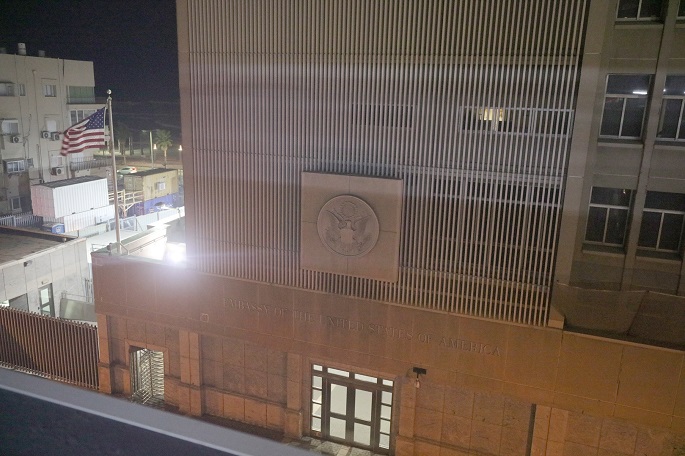1 year after U.S. embassy move
Palestinians face increasing pressure from U.S.-Israel alliance
Published : 14 May 2019, 20:27
One year after the U.S. moved its embassy from Tel Aviv to Jerusalem, the Palestinians are facing escalating violence and pressure exerted by the U.S.-Israel alliance.
The U.S. move, which violates international laws, has given Israel a "carte blanche" to further oppress the Palestinians, including its settlement expansion on Palestinian territories, demolition of Palestinian homes and killing of Palestinians, Palestinian officials and analysts said.
Palestinian medical sources said that 317 Palestinians have been killed by Israeli forces in the Gaza Strip, the West Bank and East Jerusalem during the past year, which has witnessed many Palestinian protests against the Israeli blockade and occupation of Palestinian territories.
After the U.S. embassy move, it has become clear that the current U.S. administration under President Donald Trump "has no credibility in brokering peace in the region," Saeb Erekat, secretary-general of the Palestine Liberation Organization (PLO), told Xinhua in an interview.
The U.S. move has discouraged those who want peace and encouraged those who want settlements, he said, adding that the U.S. will never succeed.
"No people will accept the denial of their rights, no matter what the price is," he said.
In addition to the popular protests, the Palestinians have also launched an international diplomatic campaign to boycott the upcoming U.S.-proposed Mideast peace plan, better known as "Deal of the Century."
Rami Saleh, director of Jerusalem Legal Aid and Human Rights Center, believed that the Palestinian political campaign on the international level has had a stronger impact than the popular protests, particularly the decision to sever ties with the U.S. administration.
The biggest impact of Trump's decision to move the embassy one year ago is that it impedes the establishment of the Palestinian state with East Jerusalem as its capital, and therefore undermines the two-state solution, said Saleh.
However, Saleh believes that the Palestinians can rely on the international community to find a satisfactory solution to the Palestinian cause.
Since the relocation of the U.S. embassy, Palestinian President Mahmoud Abbas has repeatedly called for creating a multilateral international mechanism to overlook the peace process.
Erekat said that the Palestinians have been calling for an international peace conference sponsored by the UN, and that the leadership is mulling speaking with various world powers, including France and China.
"In this context, China has a very important role to play. We need the international community to assume its responsibility, hold Israel accountable for its violations, make clear that the occupation has become a burden rather than a reward for Israel," he said.
Erekat also underlined the need to build "a strong and meaningful peace process," based on the two-state solution with the establishment of a Palestinian state on the 1967 borders, and in consistence with the international law and UN resolutions.


